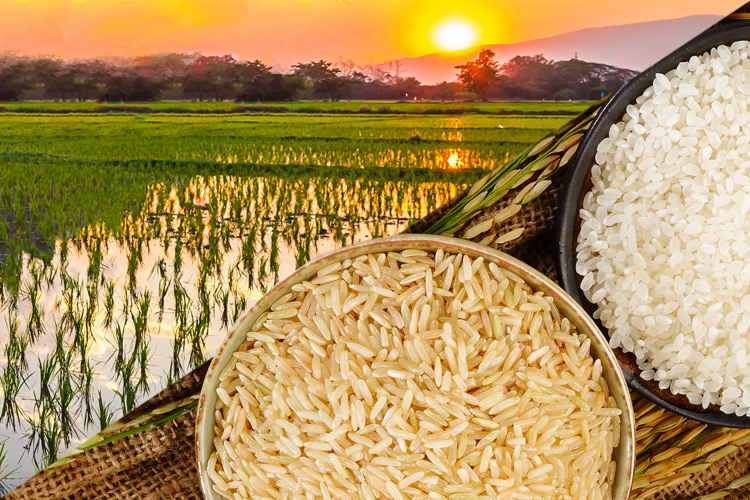What is the difference between a rice farmer and a rice miller? The simplest answer to that question is easy – a rice farmer grows rice and the other mills rice. But what does it look like when the rice farmer is also the rice miller? That’s a question that is becoming very popular in today’s economic times where many rice farmers are asking themselves “how can I get more money out of my crop?” In the past, there have always been options to increase the yield per acre by enhancing traditional farming processes or to simply purchase additional acres to plant on. More recently, however, farmers are looking at the possibility of milling their own rice and introducing that into the consumer market. This blog post is the first in the series “From Rice Farmer To Rice Miller” and will focus on the benefits of a rice farmer milling their own rice.
THE BENEFITS
1. IDENTITY PRESERVATION
A rice farmer puts their heart and soul into their crop, ensuring that the land is ready for planting, the variety of rice planted is desirable, the crop is fertilized properly and consistently, and that they are practicing farming techniques that stay true to being a steward of the land. That same standard, however, is different from farm to farm. Think about it this way – all football teams compete aggressively and want to be the best. They draft the best players for the positions they need to fill, they train relentlessly on strength and speed, they create multiple plays for a variety of defenses and they all want to be the best team in the league. In the end, however, there are only a select few that get to the playoffs. Can you imagine if they took the names from all of the players from the best teams, put them in a fishbowl, and drew randomly to place players on a new team just before playoffs? The hard work, dedication, and identity of each of those teams would be lost. In rice farming, playoffs equate to payoffs. When you sell your rice to a traditional rice mill, they take a conglomeration of rice from different farms, mix them all together, mill it, and package it with either their name on it or as generic “white rice.” What proves the value and care that you have put into your crop by processing it this way? Milling your own rice allows you to preserve the identity of your crop and deliver the highest quality product possible with your family’s name to the consumer market. Just like fans who want to see their team perform, consumers are demanding local and freshly grown products and are willing to pay a higher premium for them.
2. FINANCIAL OPPORTUNITY
Today’s market for paddy rice isn’t what it used to be – just ask any farmer. Regardless of whether you are talking metric tons, bushels, barrels, or hundred weights, the verdict is still the same: prices are down. I put together a financial analysis in 2015 on the differences between selling paddy rice in a traditional sense to a rice mill and milling your own rice with a ZX-6 Zaccaria rice mill. (You can find that analysis by clicking this link: ZX-6 Economic Study). That study showed that there was more than a $1.2 million difference in revenue opportunity on a 500-acre farm when a farmer gets into the milling side of their business and takes advantage of the consumer market. That study took into account that a farmer was selling their milled rice at $1/lb. We have clients in all six US rice producing states that are selling their milled white rice for over $3/lb and are having a huge success.
3. MULTI-GENERATIONAL EXPANSION
Many of the farmers that we work with are second, third, fourth, and even fifth generation rice farmers. They got into the rice business because their father or grandfather started it and they’ve been on and around the farm their entire lives. This new generation is a different generation. Many of the “Millennials” want to be involved in the family business, but don’t necessarily want to be on the farming side. Expanding your enterprise by adding a rice milling operation allows for those young minded entrepreneurs to add components like online sales, social media marketing, supply chain management, brand cohesion, and consumer relations. Their business might not be in farming, but farming is a part of their business and they take great pride in that.
4. JOB CREATION AND RETENTION
I don’t know any farms that are operated by one person. Most farms have a few family members and even some farm hands on board that help them tend to the rice farming operation. For those farmers who only hire seasonal workers to help with planting or harvesting, operating a rice mill in the “down times” will allow you to provide a more consistent employee opportunity. More consistent work equals better employees with more personally invested in the farming operations than just seasonal help. At the same time, If you already have a full time staff tending to the farm year round, the addition of a rice mill will allow you to add more employees and, therefore, help to contribute to the economic success of your community.
5. YOU ARE FEEDING PEOPLE
Traditional farms selling grain to a rice mill see their crop as a commodity product. When a rice farmer sees their paddy rice entering into the rice mill and a white or brown rice food grade product coming out, their perspective changes. No longer are they simply selling grain…they are enjoying the joy and pleasure that comes along in knowing that they are feeding families.
In Part 2 in our series “From Rice Farmer to Rice Miller,” we’ll talk about what equipment it takes to have an on-farm rice mill. Our goal is to provide both the farmer and the miller informative, educational, and even entertaining content. Please make sure to follow us on Facebook here and check out some of our other blog posts. We don’t just want to create a following, we want to create a community so please engage with us on Facebook or Youtube and let us know if you’d like information on a specific topic.

